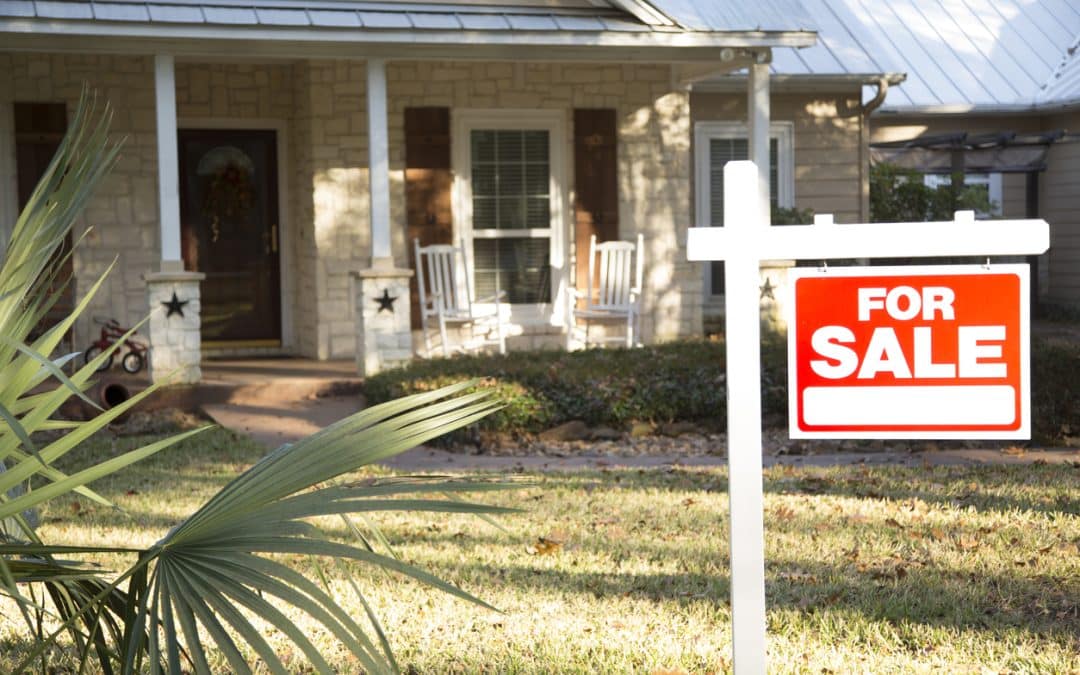
There’s no doubt that today’s real estate market is…difficult. Homes are spending an outstanding 75 days on the market, up from a low of 31 days set in May 2022. This is the longest time on market since February 2020. Days on market is a metric that tracks the time between when a house is listed and when it goes under contract with a buyer. The answer for a particular house inevitably depends on both the house itself and on market conditions in the area.
WHY WOULD A HOME NOT RECEIVE ANY OFFERS IN TODAY’S MARKET?
Many different factors go into a home not flying off the shelf. It could be due to market timing, a difficult seller, a tough location, no curb appeal, etc. Here are some reasons why your home may not be receiving offers.
PRICING A HOUSE TOO HIGH IN TODAY’S MARKET
Everything about your home might be on point when listed, but if it’s priced incorrectly for the market, it’s not going to sell. If you want to price your home correctly, you will need to do “comps” on the property. This includes researching (or having your real estate agent research) how much comparable homes are selling for. This is also an important part of the financing process, as financiers may not approve a loan for an amount significantly above comparable pricing. When determining comps, the location, square footage, and condition of the properties should be nearly identical; other elements of the home must be considered.
PERSONALIZED
Taking down a lot of your personalized items is a great idea to do for potential buyers. You want them to be able to come into your home and envision what they are going to do with certain rooms. Having too much clutter or too many personalized “touches,” such as a large amount of family photos, personal belongings laying around, etc., can prevent this imagination from taking place.
POOR LAYOUT
Sometimes a home’s layout is enough to send potential buyers packing. Maybe there’s no obvious primary suite or one of the bedrooms is located off the dining room or living room. There might not be a bathroom on the first floor. Whatever the trouble, this is generally a difficult problem to fix without major renovations, so you’ll have to decide whether you want to spend big money, reduce your price, or just wait for the right seller to come along.
NOT UPDATED
If your home is still sporting fixtures from the 1960s–and not in a cute, vintage way–it could be turning buyers off, especially if the homes in your area are all up-to-date. Updated appliances, fixtures, and furnishings go a long way toward selling a house. However, a home that is not updated normally won’t steer away first-time homebuyers who are on a budget and won’t mind a little green carpet or pink walls.
STAGING
How you present your home makes all the difference in the world. This means hiring a cleaner, patching up any holes, adding a couple of coats of fresh paint, and getting rid of excess clutter and furniture. Another beneficial strategy is to employ a staging professional. Staging is the process of making the best use of furniture and decor to make your home feel new, clean, fresh, and welcoming. Staging may make use of some of your existing furnishings, or may include brining in additional furniture and decor for a “professionally decorated” look.
LISTING PHOTOS
If the publicity photos for your home don’t make it look clean, bright, and uncluttered, you may want to hire a new photographer. If you did the photography yourself…it’s probably worth hiring a professional photographer to redo the images. The real estate industry relies heavily on digital presence to schedule showings. Photos are the first impression potential buyers will have of your home and can make or break the number of showings you receive. Potential buyers will make a snap decisions based on your photos to determine whether they want to view the property and whether they believe the price is fair. If the photos stack up, you may be saying “good bye” to potential buyers before they ever reach out for information.
CURB APPEAL
If your yard is unkept, the paint is peeling, and your front walkway is unkept, a buyer might pass on by. Great curb appeal helps sell your home faster and for more money because of its positive effect on buyers.
TOUGH LOCATION
Trying to sell a home on a busy street can be extremely hard. You might have bought the home years ago before the road was put in, but current road conditions will matter to potential buyers–especially those with children or who are concerned about road noise. To sell a home that is on a busy road, you can put up a fence around the property to make it more desirable.
MARKET TIMING
As they say “timing is everything”. In many markets, spring is a popular time to shop for homes, because families want to close on their homes and move before the next school year starts. If you put your home on the market in the fall, it may sit for a while. Nobody wants to move in the winter, especially if you live in a state where it snows.
HOW THE MARKET AFFECTS HOME SALES
Even if you’ve made all the right moves and your home is in great shape, it still may sit on the market if sales in your area are slow. If it’s a slowing market where you live, that’s going to be reflected in all home sales, not just yours.
FINAL THOUGHTS
If you’re getting your home ready to be placed on the market, follow as many of these few steps as you can so you won’t have your home sitting for a long time. Having a knowledgeable agent help you get your home listed is a huge advantage as well. You can only do so much with what you can control before the rest falls on the market and if people are buying at this time.
